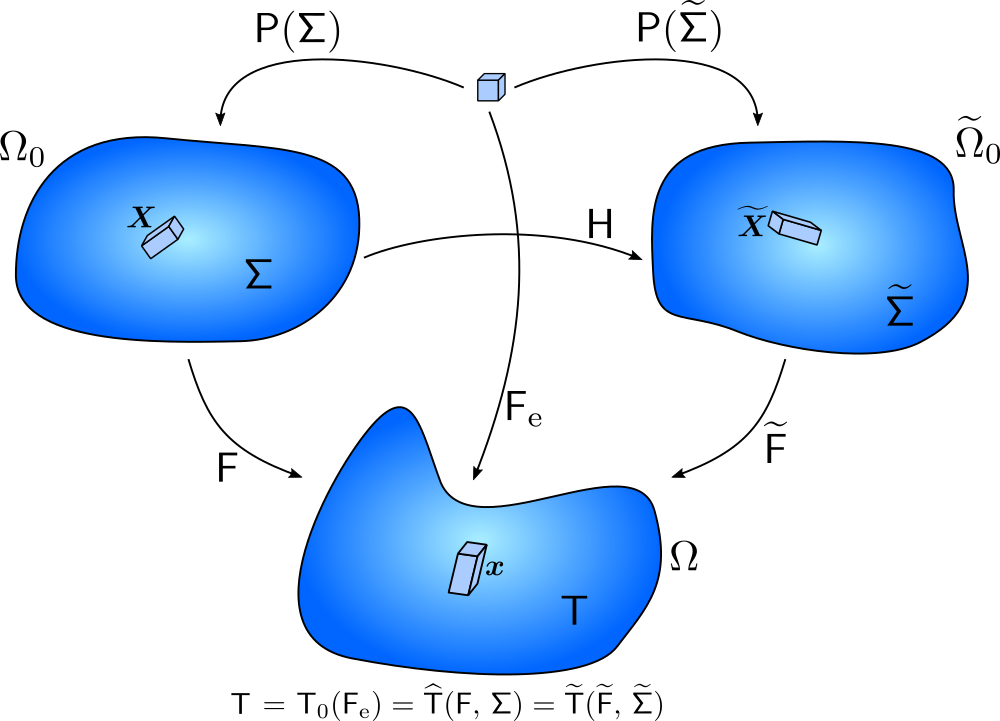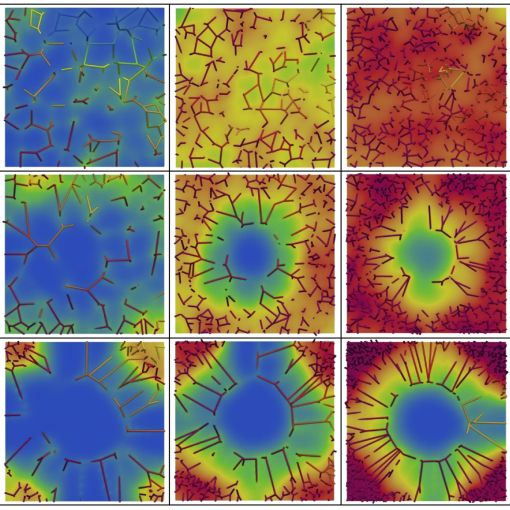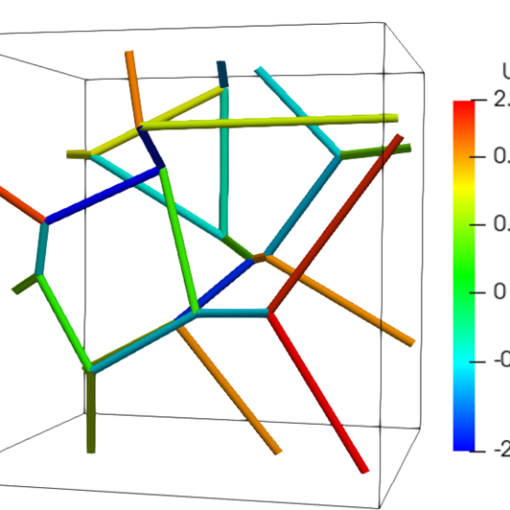A new MOX Report entitled “Modelling of initially stressed solids: structure of the energy density in the incompressible limit” by Magri, M.; Riccobelli, D. has appeared in the MOX Report Collection. Check it out here: https://www.mate.polimi.it/biblioteca/add/qmox/28-2024.pdf Abstract: This study addresses the modelling of elastic bodies, particularly when the relaxed configuration is unknown or non-existent. We adopt the theory of initially stressed materials, incorporating the deformation gradient and stress state of the reference configuration (initial stress tensor) into the response function. We show that for the theory to be applicable, the response function of the relaxed material is invertible up to an element of the material symmetry group. Additionally, we establish that commonly imposed constitutive restrictions, namely the initial stress compatibility condition and initial stress reference independence, naturally arise when assuming an initial stress generated solely from elastic distortion. The paper delves into modelling aspects concerning incompressible materials, showcasing the expressibility of strain energy density as a function of the deviatoric part of the initial stress tensor and the isochoric part of the ! deformati on gradient. This not only reduces the number of independent invariants in the energy functional, but also enhances numerical robustness in finite element simulations. The findings of this research hold significant implications for modelling materials with initial stress, extending potential applications to areas such as mechanobiology, soft robotics, and 4D printing.
You may also like
A new MOX Report entitled “A comprehensive stroke risk assessment by combining atrial computational fluid dynamics simulations and functional patient data” by […]
A new MOX Report entitled ” Modeling Hypoxia Induced Radiation Resistance and the Impact of Radiation Sources ” by Possenti, L.; Vitullo, […]
A new MOX Report entitled “Deep Learning-based surrogate models for parametrized PDEs: handling geometric variability through graph neural networks” by Franco, N.R.; […]
A new MOX Report entitled “Hybrid dimensional models for blood flow and mass transport” by Formaggia, L.; Zunino, P. has appeared in […]





